All stressed out: Urologists, most stressed profession while AS patients experience anxious surveillance.
Are we stressing each other out?
By Howard Wolinsky
We know that we prostate cancer patients are a stressed-out bunch. You can see it in their faces.
It turns out so are the urologists who care for us. Do you see the stress in their eyes and foreheads?
There’s plenty of stress to go around.
Support groups for AS patients I have been involved with for years regularly discuss “anxious surveillance.” It’s real. Some of us are wired to be stressed. But just about everyone is affected at some point.
A little bit of anxiety and stress might motivate you, or so, Dr. Andrew Roth, told me recently. He just retired from Memorial Sloan Kettering in New York. He’s the inventor of the “distress thermometer” to screen patients, told me recently. But anxiety can on occasion can get out of control and require therapy or meds.
Recommended simple tools for screening for distress. https://www.nccn.org/patients/guidelines/content/PDF/distress-patient.pdf)
U.S. Department of Label lists urologists as the leader of the stress pack
A new federal study shows that urology is the most stressful profession in the United States.
Recently, the U.S. Department of Labor’s Occupational Information Network issued a list of 873 occupations in order of their stress levels.
DoL says urologists have the most stressful job in the United States. The report defines a stressful job as one that requires accepting criticism and dealing calmly and effectively with high-stress situations.
Here are the top 10 stressful occupations:
Urologists
Film and video editors
Anesthesiologist assistants
Judges, magistrate judges, and magistrates
Telephone operators
Acute care nurses
Obstetricians and gynecologists
Public safety telecommunicators (911 operators)
First-line supervisors and retail sales workers
Nurse anesthetists
If I’m reading this correctly, journalists like me rate #12. Deadlines can be stressful.
LUGPA: Give urologists a break—it’s a tough town
The Large Urology Group Practice Association (LUGPA), an association of independent urologists, latched onto the news to make its case for promoting the welfare of the American urologist.
“Multiple factors, including the escalating physician shortage in the United States, the high stakes decisions that urologists must make every day, the regulatory burdens and the decrease in financial reimbursement from CMS (Center for Medicare & Medicaid Services), create an increasingly stressful environment for urologists and their patients," said Evan R. Goldfischer, MD, president of LUGPA. "LUGPA has made tremendous strides in addressing these issues and strengthening the field of independent urology, and we will continue expanding our efforts to reduce stress for urologists and create the best possible environment for them to be successful."
LUGPA also said that the urologist shortage, along with the large-scale care delay caused by the COVID-19 pandemic, has created a significant increase in demand for appointments, leading to longer wait times. COVID itself is a stress factor,
LUGPA should have mentioned physician burnout, too.
The demands put on doctors is a scandal in itself. I feel guilty every time I write a note in the patient portal to my doctor, and he responds at 9 p.m. or later. I know I am pulling him away from his family because he doesn’t have enough time in a day to respond.
With these active challenges, urologists also must deal calmly and effectively with high-stress situations. This skillset is what enables urologists to clearly advise patients on next steps in life-or-death situations, including the diagnosis and treatment of prostate and bladder cancers, LUGPA said.
(Distress flag US-style.)
Anxiety, stress, and distress seem to be contagious. Being an AS patient carries a heavy emotional toll for many of us even though our doctors may say we are at zero risk of dying from Gleason 6 and zero risk of cancer spreading.
But our families, who often don’t quite trust the AS approach, can be very upset and share a dose of their anxiety. Likewise, Laurence Klotz, MD, “father of AS,” and other urologists have told me that urologists can be anxiety carriers as they care for Gleason 6 patients and worry about putting men on surveillance and worry that a more advanced cancer will emerge.
So it looks like emotional stress goes both ways—from patient to urologist, and urologist to patient. Are we stressing each other out?
Patient distress
Various surveys show that 30-50% of prostate cancer patients experience emotional distress, including stress, anxiety, and depression, which are known collectively as emotional distress.
It doesn’t matter if we have low-risk Gleason 6 (Grade Group 1) and are experiencing anxious surveillance, or if we’re patients with advanced prostate cancer facing existential issues.
From what I have seen, distress issues can be high wherever we fall on the prostate cancer spectrum.
Effects of stress
Living with cancer can raise your stress levels. Cancer stress can raise your levels of the stress hormones, epinephrine and norepinephrine, which increases blood pressure, heart rate, and blood sugar levels. It’s called the flight-or-fight response.
Chronic stress can lead to digestive problems, heart disease, high blood pressure, and a weakened immune system, according to the National Cancer Institute, which is cautious about blaming stress for causing cancer.
We have these issues and yet our urologists generally don’t screen us for emotional distress as I reported in Medscape Medical News in November.
It’s a simple thing to do a check using the emotional distress thermometer and answer a list of questions relating to distress as recommended by leading guideline organizations, including the American Society of Clinical Oncology, the American Cancer Society, the American College of Surgeons, and the National Comprehensive Cancer Network.
Screening would find those patients who need immediate psychological attention to help smooth their prostate cancer journeys.
It seems easy, but I have yet to meet an AS patient who has undergone emotional screening.
No screening even though major groups such as the American Society of Clinical Oncology, National Comprehensive Cancer Centers, the American College of Surgeons, and the American Cancer Society recommend screening for distress in cancer patients.
Oddly, the patient care guidelines for the American Urology Association and also from the American Society for Radiation Oncology (ASTRO) don’t include recommendations for emotional distress screening.
Change coming?
Maybe this will change as urologists join their patients on the stress rollercoaster.
AUA and ASTRO need to update their guidelines, working with ASCO and other groups, as Rick Davis and AnCan Foundation have suggested. It certainly wouldn’t hurt and may help.
Maybe we need to hold a summit to try to restore some calm to the patient-urologist relationship.
Should we form joint MD-patient meditation and yoga groups?
Join AnCan Webinar on the invasion of the prostate snatchers with Dr. Mark Scholz
By Howard Wolinsky
Dr. Mark C. Scholz, co-author of the groundbreaking 2010 book: “The Invasion of The Prostate Snatchers,” will be speaking at 8-9:30 p.m. Eastern on Jan. 30 at an AnCan webinar.
Scholz’s program is entitled, "Invasion of the Prostate Snatchers: 13 years later. An evening with Dr. Mark Scholz." To register, click here.
He and co-author Ralph Blum blew the lid off the prostate cancer-industrial complex in 2010 when they exposed overuse and overdiagnosis who patients who didn’t need to be treated and could be followed with active surveillance.
Everyone is welcome to the free webinar, which will be open to patients ranging from those with low-risk cancer to those with advanced prostate cancer.
(Dr. Mark Scholz: Fighting the prostate invaders since 2010.)
Spoiler alert: Things are better but the invaders still are snatching and nuking large numbers of prostates unnecessarily.
A new edition of Invasion was issued in August 2021. Worth the read.
I recently reviewed the book:
Have a Happy Holiday Season.
Meanwhile, mPulse Mobile, working in conjunction with a major health organization, is developing the first smartphone app for active surveillance. If you want to participate, contact Anjali Logue at Anjali.logue@mpulsemobile.com They’re paying $1,000 if you are selected to be interviewed. Video will be incorporated into the app. (Disclosure, I am a consultant on this project.)


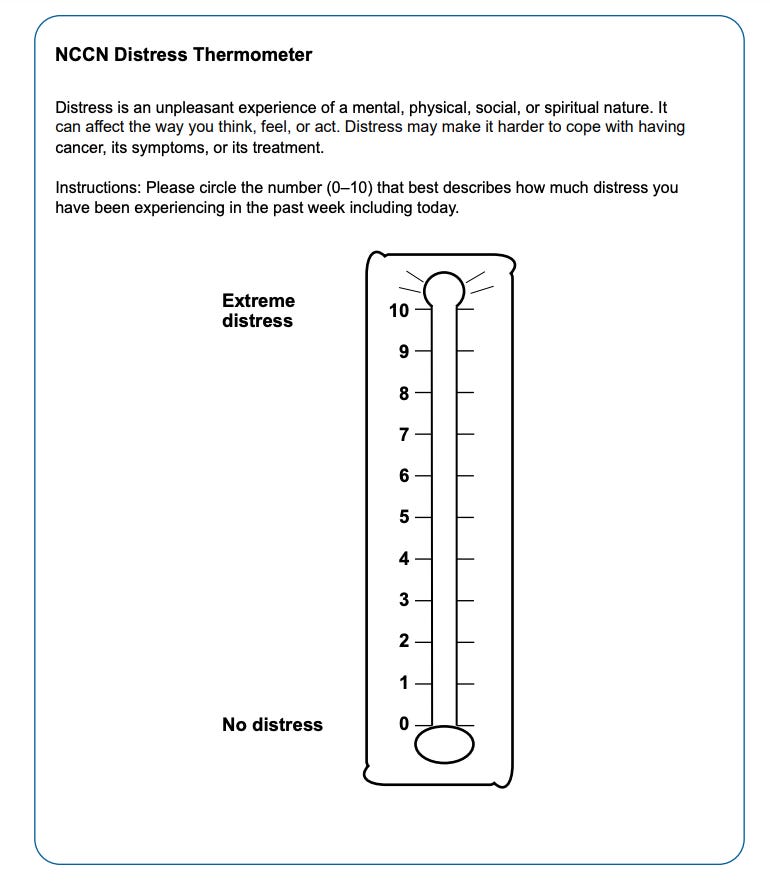
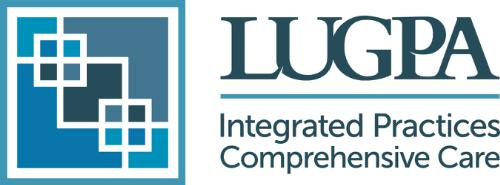
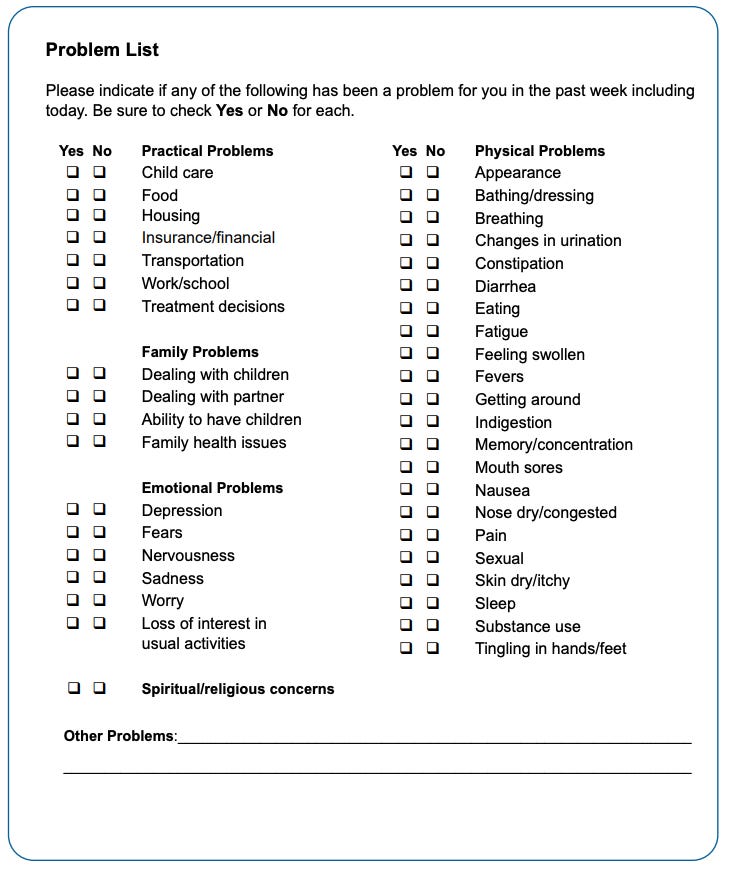

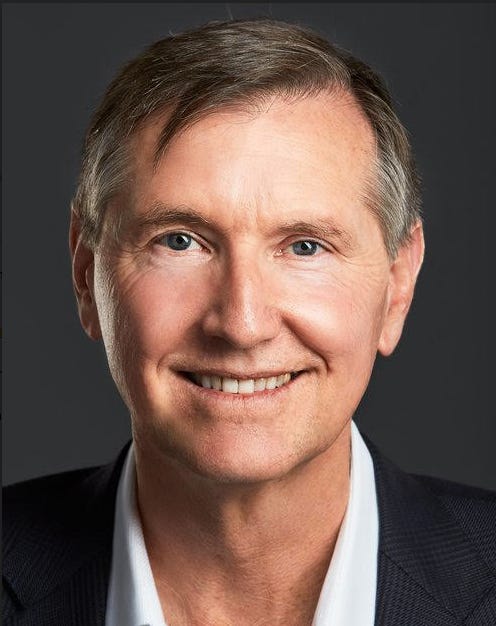
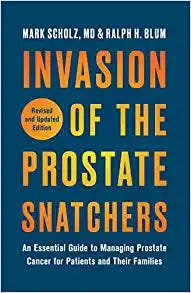
I am sharing this from Rick "water polo" Parmer, a model of exercise. He got the E-gene bigtime. Thanks, Rick. Here's with sweating with us oldies in 2023. Research shows there is great benefit to exercise and suppressing PCa. I walk about five miles a day. And my legs are aching today. In a good way...
Rrparmer via mg1.substack.com
Thu, Dec 22, 11:25 PM (9 hours ago)
to me
Howard, I think the single best way to reduce stress is what most older AS patients and their urologists don’t do.
Exercise enough.
That raises endorphine levels, increases muscle mass, and tires you out so you sleep better (naps and nighttime). Cardio exercise until you sweat, interval training, core work (abs, gluts, hamstrings) and lifting weights. Swim, walk, jog, bike (free and stationary).
If AS patients and urologists did this 4x a week I think stress levels would drop significantly.
I have not seen the results of the UCSF prostate cancer and exercise study from 4 years ago. I was In the super cohort but never contacted again. But in my not so humble opinion, the treatment group exercise regime was so light weight I would be surprised if study results showed statistically sognificant decrease in Gleason 6 or 7 cancer progression from the control group. Or any improvement in emotional quality of life and stress reduction either. I hope I am wrong
I would also be curious if they have any yoga and meditation prostate cancer study results.
Maybe you could delve deeper on exercise studies in future articles.
Happy Holidays. Hope you and family snuggle down safely for the “storm of a generation”
Cheers, water polo Rick
Good plan, Jeff.
Maybe move laughter up to the top?
Don't let the holidays stress you out.
Seasons greetings to all. Happy 2023.
Howard